Responsible metals supply chains: Building sustainable futures
The global shift towards renewable energy is imperative to combat climate change. However, this transition brings significant challenges, particularly concerning the sourcing of rare critical metals essential for green technologies.
At CNV Internationaal, we are dedicated to an energy transition that is not only sustainable but also just and fair, upholding workers' rights and promoting ethical practices throughout the metals supply chain.
The dual challenge of the energy transition
The pursuit of a greener economy has led to:
- Increased demand for critical metals: Technologies such as electric vehicles, wind turbines, and solar panels require substantial amounts of metals like copper, nickel, lead, tin, and silver.This surge in demand has intensified minerals mining activities, often under precarious conditions for the people working in the mining industry.
- Decline in coal mining industries: As the world moves away from coal workers and communities reliant on the industry face economic uncertainties and job losses. Addressing these challenges requires a comprehensive approach that balances environmental goals with social equity.
Learn more about what's happening in the mines in Africa, Asia and Latin America where Europe sources its critical minerals.
What is happening? Quick acces

Main problems in mining
Our energy transition heavily relies on a small number of countries and companies, concentrating power within supply chains. A handful of international corporations dominate both metals and coal mining industries, limiting ethical oversight. China plays a critical role. According to the USGS, China imported 80% of rare metals globally in 2019, threatening our metal access and Europe’s ability to influence climate, environmental, and human rights impacts.
Miners enable our energy supply at the front of the value chains, but they often work under harsh conditions. Workers are usually subjected to inhumane living and working conditions. Another major problem in the mining industry is outsourcing, which strips workers of job security, fair pay, basic rights and safety protections.
Fair Work Monitor
Our Fair Work Monitor is a survey tool, that local unions can use to collect data among workers, who can complete the survey easily and anonymously.
Our Fair Work Monitor in the mineral and coal mining sector in Latin America revealed that miners deal with horrendous working conditions on a daily basis. They are constantly exposed to dust and gases, and their companies do not provide them with adequate security and protection. This makes them vulnerable to silicosis, and irreversible respiratory disease.
There was also an obvious breach in labour conditions for outsourced or subcontracted workers compared to directly hired workers. These problems are discussed below.
The problems of widespread outsourcing
Most mining companies outsource their labour, leaving a majority of workers employed by subcontractors. Our Fair Work Monitor has shown that less than a third of the miners are directly employed.
Outsourcing creates the following significant vulnerabilities compared to directly employed workers:
- Short-term contracts: Subcontracted workers often receive contracts lasting just 3-6 months, with little job security.
- Limited worker rights: Subcontracted employees are frequently denied the right to join unions or negotiate directly with mining companies, leaving them without a voice in improving their working conditions.
- Unequal pay: Subcontracted workers earn, on average, 30% less than their permanently contracted colleagues, despite performing the same work.
- No extra compensation: Subcontracted workers are often excluded from overtime pay and holiday compensation, further widening the income gap.
- Grueling work schedules: Many endure excessively long shifts, such as Colombia's notorious "death shift"—7 consecutive days of 12-hour shifts followed by only 3 days off.
- Unsafe and unhealthy conditions: Mineworkers in general risk serious occupational health and safety problems due to the extractive work. Access to health care and social security is indispensable now and in the future. OSH risks of outsourced workers are even higher.
THE CASE OF THE DEATH SHIFTS - EL TURNO DE LA MUERTE
In 2021, companies in northern Colombia went from 4 to 3 shifts per month, meaning workers went from 15 to 21 days of work per month.
They work 12 hours a day for 7 days in a row, and then get 3 days of rest. The same amount of work now has to be done by 25% fewer workers. 1 in 4 miners became unemployed.
Workers call it the "shift of death" ("El turno de la muerte"] as the longer working shifts lead to exhaustion of the mineworkers, and a growing risk of fatal accidents during the latest shifts.
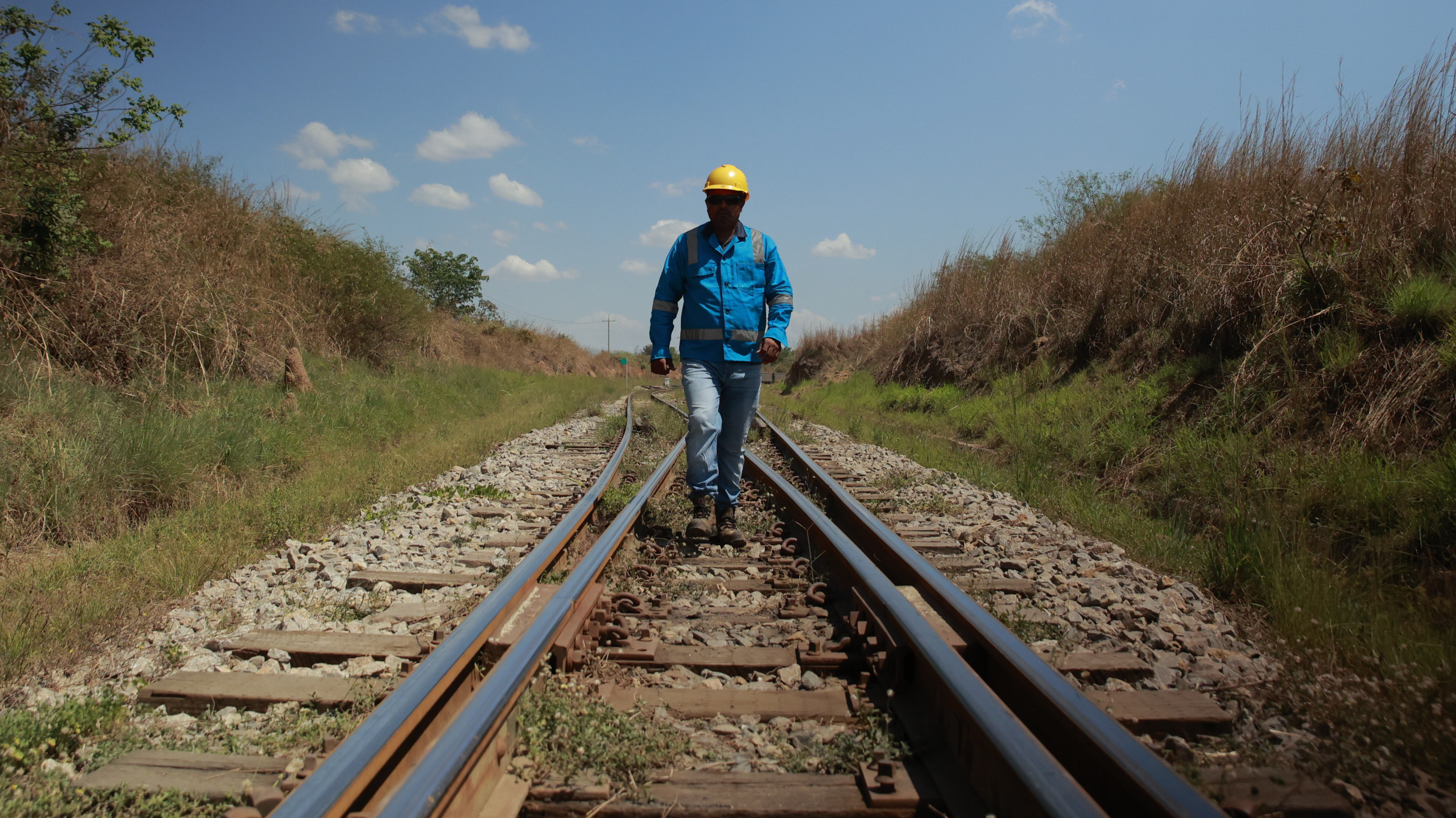
Our approach and impact
CNV Internationaal strives for a transition that is not only environmentally sustainable but also socially just.
Learn more in our strategy and analysis paper >
Impact - cases
Only through cooperation and joint action will the situation truly change,"
explains Maurice van Beers of CNV Internationaal.
1. Promoting fair labour practices in mining
We collaborate with trade unions to improve working conditions, ensure fair wages, and uphold labor rights in mining communities.
Impact examples:
- We contribute to transparancy and safer and healthier working environments for miners, through a partnership with Tata Steel Nederland and Wuppermann Staal Nederland initiated through the Dutch international RBC agreements>
- In late 2023, a fire at a nickel smelter in Morowali, on Sulawesi in Indonesia, resulted in the death of 21 workers and serious injuries to 466 others. While tragic, the accident was not unexpected given the poor safety conditions in the factories. Labour organisations, including KSBSI, the Indonesian partner union of CNV Internationaal, are demanding improvements, such as updated safety instructions in Bahasa Indonesian (because many are in Chinese) and the establishment of an emergency response team. Read more >
- In Colombia, local mining unions supported by CNV Internationaal have set up the Workers Collective for a Just Transition. It develops proposals for social plans with decent compensation for loss of work and healthcare expenses for job related illnesses.
Learn more on our impact in Colombia >
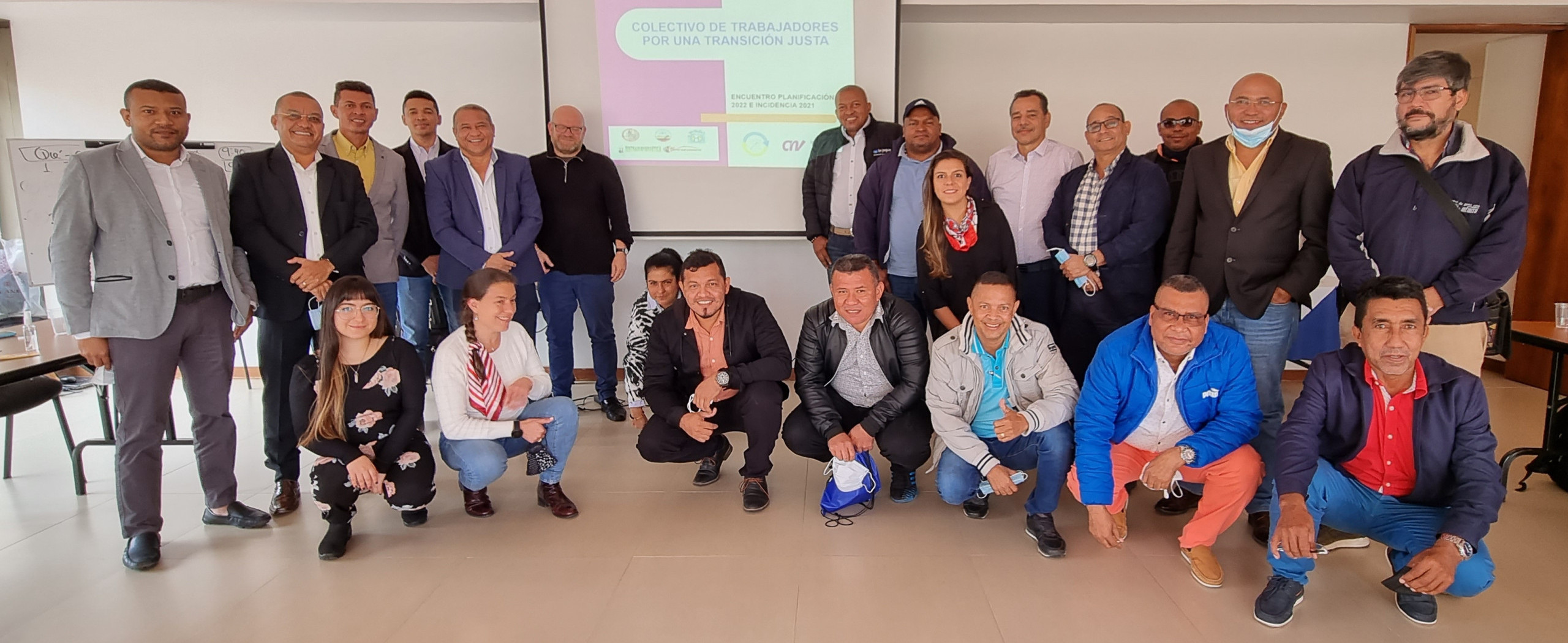
Members of the Workers Collective for a Just Transition (Colombia)
2. Enhancing supply chain transparency
We promote transparency in the sourcing of raw materials to ensure ethical practices and reduce risks and negative impact for working people.
Impact example:
- CNV Internationaal developed the Fair Work Monitor that tracks labour conditions like health and safety at work, wages, outsouring and trade union freedom.
3. Facilitating just transition partnerships
We work with governments, businesses, and unions to develop strategies that support workers transitioning from fossil fuel industries to sustainable employment opportunities.
Impact example
- In the coal-dependent region in the north of Colombia, we have facilitated programs that retrain workers for jobs in the renewable energy sector.
4. Human rights and environmental due diligence (HREDD)
We support the implementation of robust HREDD frameworks, holding companies accountable for their supply chain practices.
Impact examples
- CNV Internationaal contributed to the development of European policies that require companies to assess and address human rights and environmental risks in their operations. Learn more
- In the Netherlands, investors in the mining industry and metals end-user companies are increasingly committed to HRDD in regard to their investment policies and purchasing practices. We have formulated these recommendations for the different parties in the value chain.
- For the first time ever a complaint was filed with the EU's complaint mechanism (called Single Entry Point) was filed, in a quest to address precarious working conditions in the mines in Colombia and Peru, by local trade union organisations, together with CNV Internationaal..
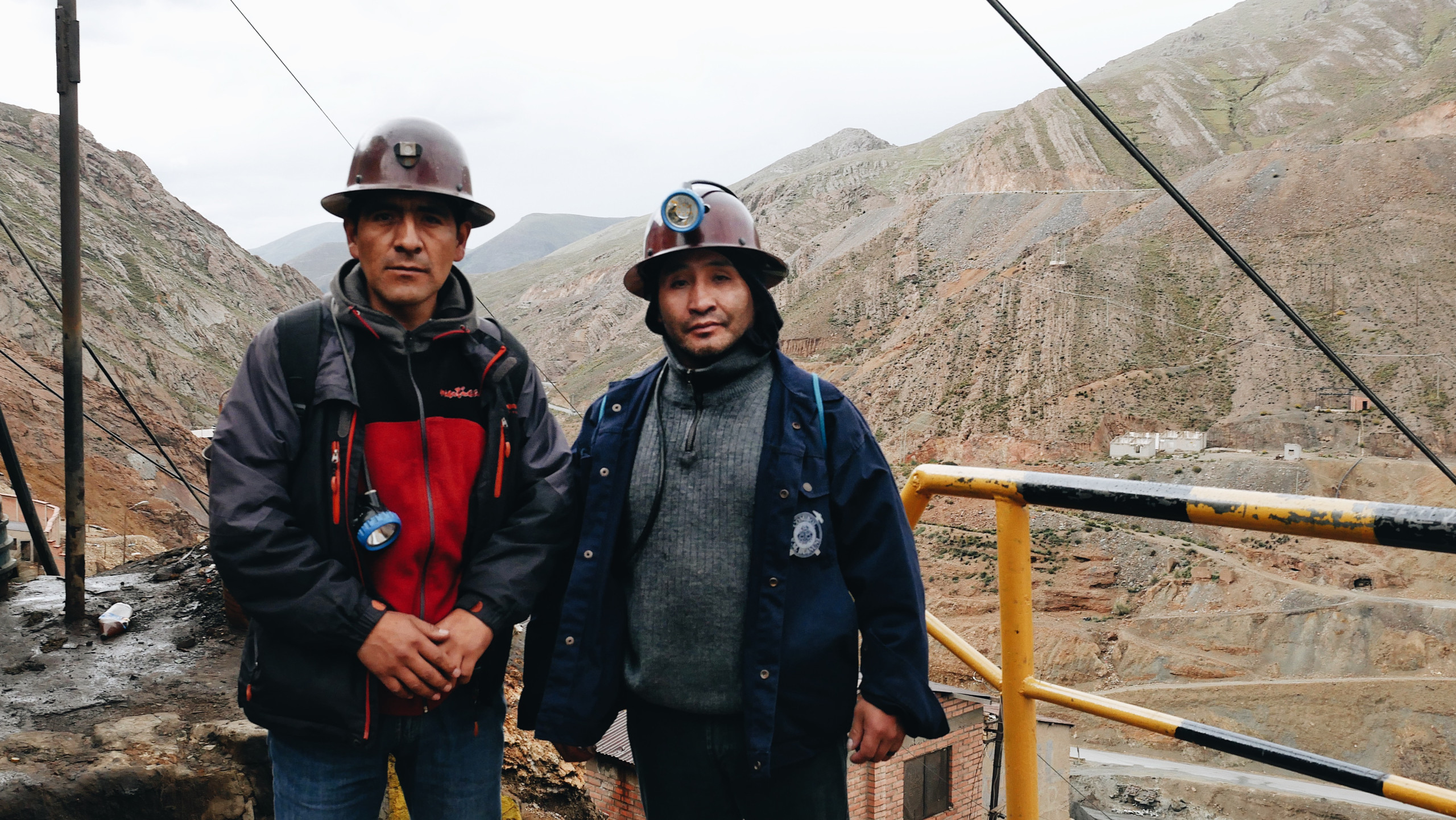
Workers in metals mining in Bolivia
The strategic value of a just transition
A fair energy transition is not only a moral imperative but also a strategic necessity. By investing in sustainable mining practices and establishing equitable partnerships, Europe can:
- Reduce dependency on limited suppliers: Diversifying sources of critical raw materials enhances energy security and economic resilience.
- Mitigate geopolitical risks: Transparent and fair supply chains decrease reliance on politically unstable regions.
- Strengthen economic positioning: Responsible sourcing appeals to consumers and investors, providing a competitive advantage.
Contact
Achieving a just energy transition requires collective action. Whether you're an investor, business leader, policymaker, or trade union leader, your involvement is crucial.
- For businesses: Partner with us to align your operations with fair labor standards.
- For policymakers: Collaborate with us to develop and enforce regulations that promote ethical supply chains.
- For trade unions: Join our efforts to raise awareness and drive change towards a just energy transition and also discover our HREDD training toolkit .
Contact CNV Internationaal
Maurice van Beers, Just Transition Expert: m.vanbeers@cnv.nl
Wouter van Dis, Strategic Policy Advisor: w.vandis@cnv.nl
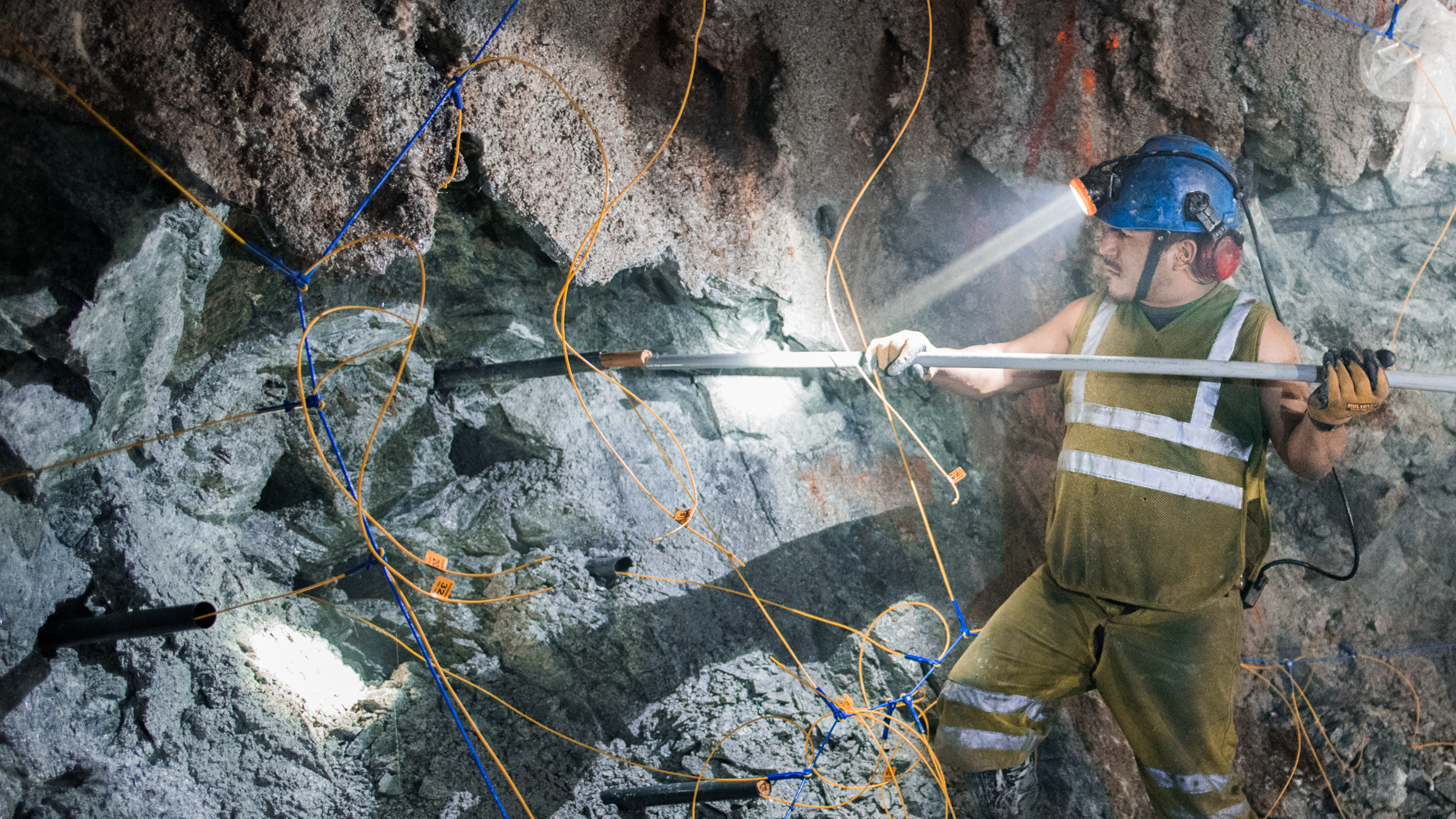
Our resources and tools
To support fair and sustainable metals supply chains, CNV Internationaal offers a range of resources and tools. Through these resources we aim to empower stakeholders to take action, promote transparency, and support workers in the mining industry.
- Our analysis and proposals: A fair and sustainable energy transition
Outlines our vision and strategies for ensuring a socially equitable just energy transition.
- Fair work monitor
This participative monitoring tool helps trade unions assess working conditions, increases transparancy and helps to identify areas for improvement in global supply chains.
> Fair Work Monitor in Mining
> Discover our Mining Fair Work Monitor
- HREDD training toolkit for trade unions
A practical guide to strengthen the capacity of unions to address human rights and environmental due diligence requirements.
> Download the toolkit package
Country cases and studies
Detailed insights into mining practices, worker conditions, and union strategies in mining industry in Africa, Asia and Latin America.
AFRICA
- Research of the South African mining sector - Labour rights in transition mineral mining
> Key findings, recommendations
> Full research
ASIA
- Nickel essential for the energy transition, but at what cost
Indonesia's role in the global nickel industry .
LATIN AMERICA
- Improving occupational health and safety in the mines in Bolivia and Peru
- Recommendations and key take aways for investors
For investors and other stakeholders with a focus on outsourcing in the minerals supply chain in Peru, Colombia and Bolivia.
> Recommendations and key take aways
- Analysis of the minerals supply chain
Towards a just energy transition, Labour rights risks in the Latin American mining sector.
> Research by Profundo
> Also available in Spanish
- Research OSH risks in mining
> Key outcomes and main risks
> Download full research by Profundo PDF
- First complaint to the EU complaint mechanism
With the EU's complaint mechanism (called Single Entry Pointm SEP) we addressed precarious working conditions in the mines in Colombia and Peru, that produce the coal and metals indispensable for the European Union’s energy supply.
> Latest update and EU complaint
- Proposals of the Colombia Workers Collective: Labour Prospects of Energy Transition in Coal Mining
- Trade and financial relationships and the CSR approach of mining companies - Colombian coal
WEBINARS
- The South African mining sector - Labour rights in transition mineral mining
- OECD s minerals forum side webinars
- Outsourcing in Peru, Colombia and Bolivia (2021): clear recommendations and key takeways on how to reduce the risks of outsourcing for stakeholders, metal buyers, traders, governments, investors, and also the mining companies themselves.
- Webinar serie: Scenarios for the energy transition
Together with partners of the Netherlands international RBC agreement for the metals industry (2022)
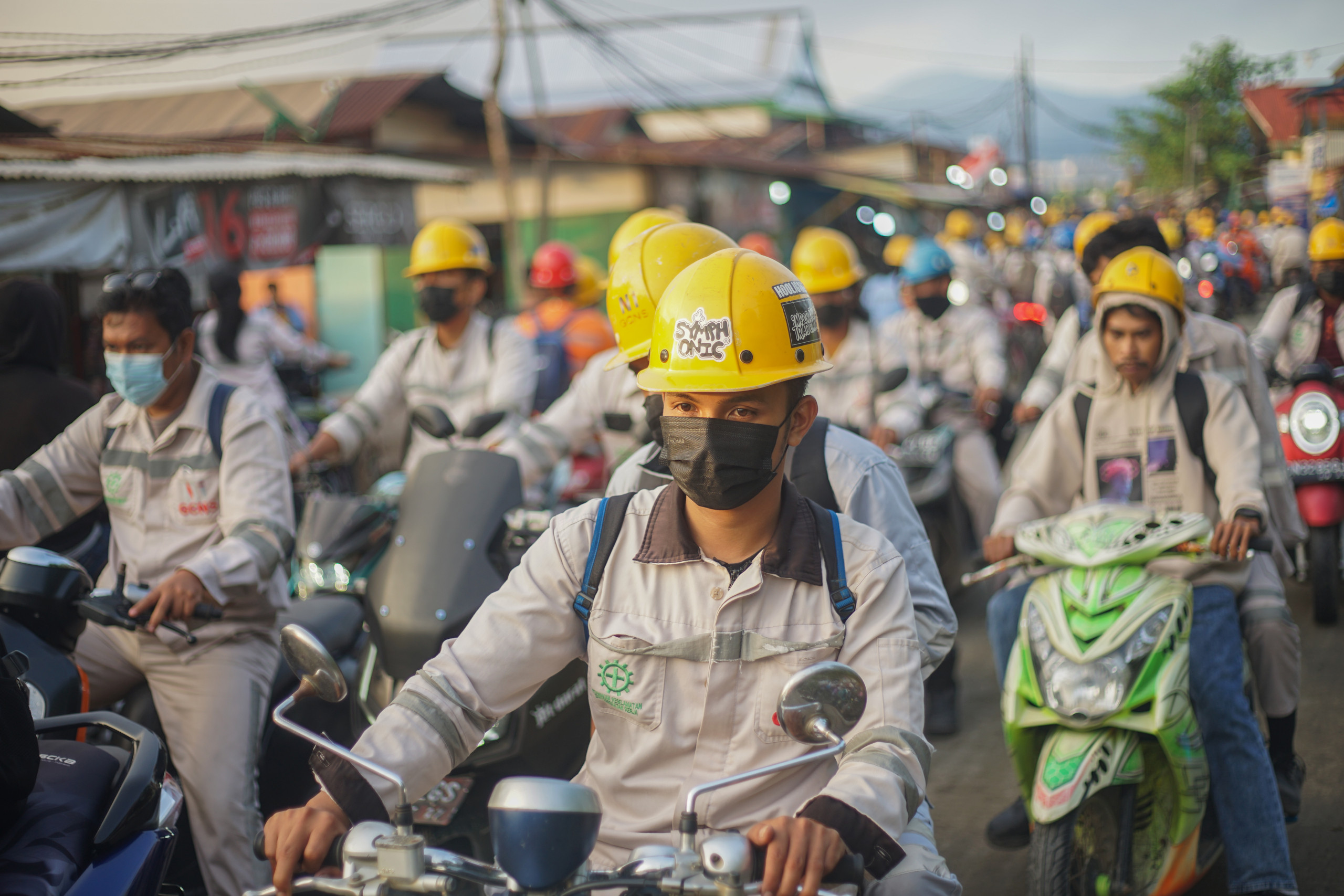
Workers on their way to work in the nickel industry in Indonesia (Morowali, Sulawesi)